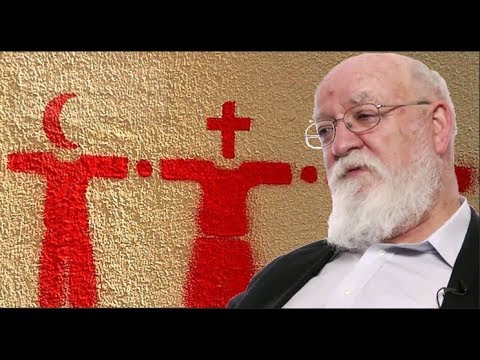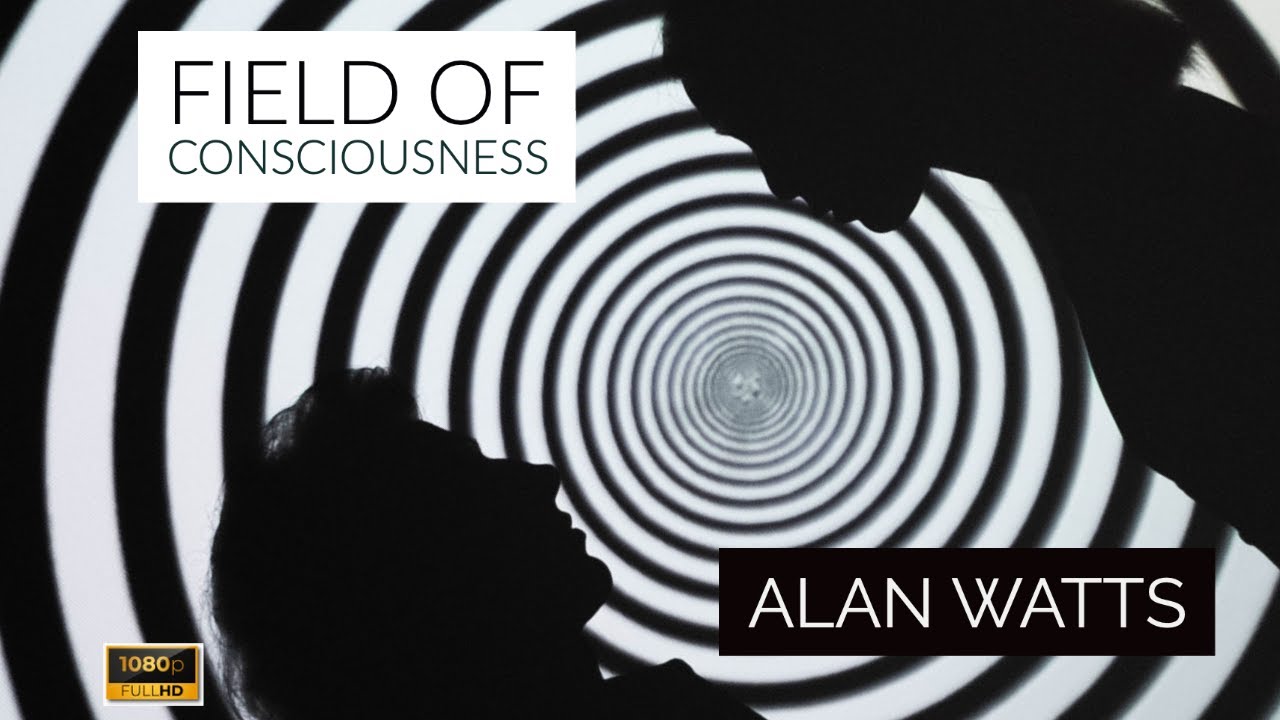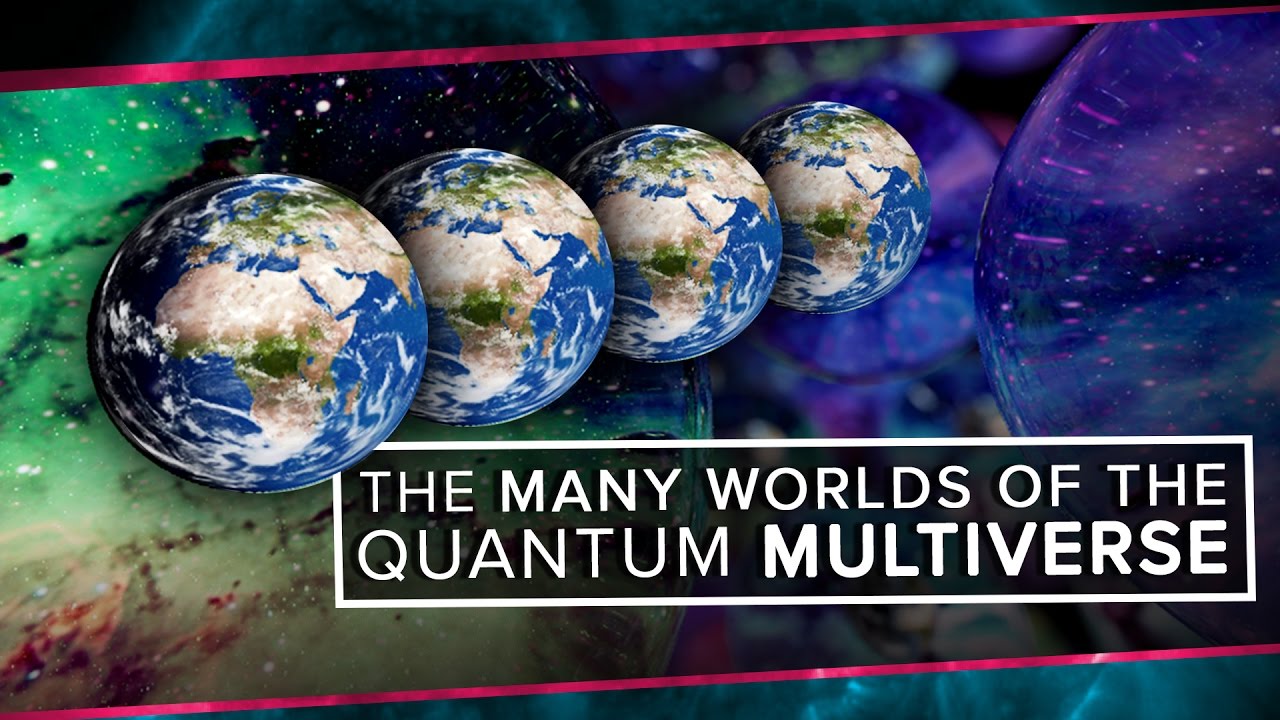UCgYY8–wnXavkJvtSNinUEw
SUBSCRIBE: https://www.youtube.com/channel/UCgYY8–wnXavkJvtSNinUEw
Religions have probably changed more in the last two centuries than they changed in the last two millennia, and perhaps they will change more in the next twenty years than they have in the last two centuries. Dennett discusses religions as intricately designed cultural survivors. He examines how and why their parts work together as they do and explores how we can respond thoughtfully to the challenges they currently suggest.
Daniel C. Dennett, the author of Breaking the Spell (Viking, 2006), Freedom Evolves (Viking Penguin, 2003) and Darwin’s Dangerous Idea (Simon &Schuster, 1995), is University Professor and Austin B. Fletcher Professor of Philosophy, and Co-Director of the Center for Cognitive Studies at Tufts University. He lives with his wife in North Andover, Massachusetts, and has a daughter, a son, and three grandchildren. He was born in Boston in 1942, the son of a historian by the same name, and received his B.A. in philosophy from Harvard in 1963. He then went to Oxford to work with Gilbert Ryle, under whose supervision he completed the D.Phil. in philosophy in 1965. He taught at U.C. Irvine from 1965 to 1971, when he moved to Tufts, where he has taught ever since, aside from periods visiting at Harvard, Pittsburgh, Oxford, and the École Normale Supérieure in Paris.
His first book, Content and Consciousness, appeared in 1969, followed by Brainstorms (1978), Elbow Room (1984), The Intentional Stance (1987), Consciousness Explained (1991), Darwin’s Dangerous Idea (1995), Kinds of Minds (1996), and Brainchildren: A Collection of Essays 1984-1996 (MIT Press and Penguin, 1998). Sweet Dreams: Philosophical Obstacles to a Science of Consciousness, was published in 2005 by MIT Press. He co-edited The Mind’s I with Douglas Hofstadter in 1981. He is the author of over three hundred scholarly articles on various aspects on the mind, published in journals ranging from Artificial Intelligence and Behavioral and Brain Sciences to Poetics Today and the Journal of Aesthetics and Art Criticism.
He gave the John Locke Lectures at Oxford in 1983, the Gavin David Young Lectures at Adelaide, Australia, in 1985, and the Tanner Lecture at Michigan in 1986, among many others. He has received two Guggenheim Fellowships, a Fulbright Fellowship, and a Fellowship at the Center for Advanced Studies in Behavioral Science. He was elected to the American Academy of Arts and Sciences in 1987.
He was the Co-founder (in 1985) and Co-director of the Curricular Software Studio at Tufts, and has helped to design museum exhibits on computers for the Smithsonian Institution, the Museum of Science in Boston, and the Computer Museum in Boston.
Credits: https://www.santafe.edu/
Donate at: https://www.santafe.edu/engage/support/give-now




In democratic nations, skepticism thrives.
Rising economic standards reduces the spread of religion.
Greater access to information and contrarian viewpoints helps reduce the spread of religion.
Improving freedom, wealth, and knowledge will help reduce religion.
People who cannot tell poetry from prose confuse religious mythology with "religion". They exist both as exponents of religion as "faith" in a mythology, and as professional atheists who crusade against religious mythology. They richly deserve each other. And, neither one has anything of value to offer.
Apartheid is a GREAT idea to avoid race mixing and IQ dilution. It was hard to create superior races like Hebrews, Chinese, Japanese, and Europe. We need to keep these tribes unpolluted and undiluted by inferior genes. There are superior people and inferior people based on IQ. Racists favor their parents, spouse, self, and children over others. We are all racists when it comes to FAMILY. We are tribal, not globalists. Race transcends globalism.
History and science tell us what is. History and science can not explain what is not, love, origins, creation, the Universe. Science and history are so incomplete based on the 4% of the Universe that can be seen. 96% can not be seen, invisible, unspoken, like the seed wisdom. What is the seed wisdom? Where did it come from? The seed wisdom really did make me, for real, as the true Creator God. How do I come to grips with this.
People that nobody loves? Excuse me? The ONLY person that can love you as you want to be loved is yourself. Only you can love you and find true bliss in the breath. No one can love me as much as I love myself. We all have this love designed into the seed wisdom.
I would say globalism is a religion, based on the metaphor of legally counterfeited currency as a belief system. Wall Street is the fastest growing religion, the belief in fake, metaphorical debt notes. This is a faith based, fake news, fake religion. Protect yourself.
Education is a religion, based on faith based metaphors, fake faith based metaphors, that are not real. The word baby is not a real baby. The picture of baby is not a real baby. Only a real baby, with it's real mystery, it's real seed wisdom, is real, with real breath. Education segregation, education inequality, is a huge movement for taking vastly more rewards than deserved. Jews cling to this system.
Evidence? Religion, Islam, is on the rise in London.
1:11:28-48 Those people have anime, they don't need religion.
OK so… you admit that religion is domesticating to humans, you point to the success of these 'domesticated' cultures, yet you come to the conclusion that there is no useful evolutionary purpose for religion… perhaps you're avoiding an unpleasant truth – that our society may in fact be dependent on some type of religious indoctrination in order to properly function.
watch at 125% speed…
https://www.youtube.com/watch?v=V5OA0qR5Sp8&t=94s
Religion is a virus of the mind.
ALL religions must be eradicated.
I think the spread of religion has mostly to do with the media it is delivered on.
This guy presenting Dennett takes so long that he seems to think that it's him we want to hear.
what a crock of shit….
if any of you out there fail to see the gapping holes in his arguments, his leaps across logical chasms…. well somebody has to be on the lower end of the IQ range, sorry it is you…
30-10-2018
Theistic thinkers have long noted…
The universe must have a beginning, else it could not expand. Thus the expanding universe is a contingent effect of that inexplicable Singularity.
The cause of the effect, then, must transcend the effect (else it could not be the Cause).
Since the effect is subject to time and space and physicality, the Cause must be timeless (not subject to change) and immaterial (not contingent physicality) else it would be no cause.
There can be no infinite regress of causes, per Occams Razor.
So here we are… Gen. 1:1: "In the Beginning God created the Heavens and the earth…"
John Dee’s Life Shows Science’s Magical Roots | Smart News | Smithsonian
Magical Roots. His life shows a time when science and magic intersected–even for scientists
https://www.smithsonianmag.com/smart-news/john-dees-life-shows-sciences-magical-roots-180963985/
Magical Roots. His life shows a time when science and magic intersected–even for scientists
image: https://thumbs-prod.si-cdn.com/guGA69TssRnaSN8slvIzYtMd1dk=/420×240/https://public-media.smithsonianmag.com/filer/5e/77/5e7764c2-d4f1-438d-96e2-16de6d470da8/dee_edited.jpg
John Dee was an accomplished mathematician, but he also said he owned a stone (in his right hand) that was given to him by angels. In Elizabethan England, that wasn’t all that odd. (Wellcome Images/wikimedia commons)
By Kat Eschner
SMITHSONIAN.COM
JULY 13, 2017
7504066
John Dee, born on this day 490 years ago, was Queen Elizabeth I’s scientific advisor–but he was also a magician.
He carried on a lengthy conversation with spirits. But he was also a Cambridge-educated scientist who did postgraduate work with the likes of Gerardus Mercator, a cutting-edge mapmaker in a time where maps were–as today–essential technology. He was an authority on navigation who was “intimately involved in laying the groundwork for several English voyages of exploration,” writes Encyclopedia Britannica. He even suggested that England should adopt the Gregorian calendar.
In 2017, these different roles might be played by totally different branches of government. “Dee is more or less uncategorisable by today’s standards,” writes Philip Ball for New Scientist. “Some of his Tudor contemporaries might have considered him a philosopher, an astrologer, perhaps even a magician–but they would have agreed that he was, above all, a mathematician.” Technically, that was the role he played at Queen Elizabeth’s court.
“And what did Dee do with math? He cast horoscopes, practiced numerology and alchemy, and sought occult codes that would permit conversations with angels in the language used by Adam,” writes Ball. Queen Elizabeth relied on him for astrology as well as for his other skills. Being court mathematician was inextricably entwined with the role of court magician (although that wasn’t a title he or anyone else held during the Elizabethan age.)
“The magic and alchemy he practiced, while never uncontroversial, were intimately woven together with his investigations into religion, mathematics and natural science,” writes Tim Martin for The Telegraph. Dee was a scientist who used the tools at his disposal to investigate the world around him, just like his contemporaries Francis Bacon–originator of the modern scientific method–and Galileo Galilei.
image: https://public-media.smithsonianmag.com/filer/b4/48/b4489b66-850f-4217-a351-0d17f8065ba2/dee.jpg
John Dee performs an experiment in front of Queen Elizabeth I in this nineteenth-century painting. (Wellcome Library)
Dee did most of his work at his home in a river district called Mortlake, where he kept a collection of more than 4,000 books–bigger than the libraries of Oxford and Cambridge, writes Martin. With subjects ranging from mathematics and poetry to religion and astronomy, the collection was as varied as his professional pursuits. He also possessed a collection of magical artifacts, such as a magic mirror used for communicating with spirits and a crystal ball.
And this was…kind of normal for the period. “The occult sciences enjoyed a kind of Renaissance in later Elizabethan England as print and translation made ancient, medieval and earlier Renaissance texts available to would-be English adepts,” writes academic Paul S. Seaver. John Dee, like other scientific minds of the period, engaged with the occult as a way of gaining more information about the world–a world in which spirits were potentially as real as gravity. The empirical worldview of Francis Bacon “may ultimately have triumphed,” he writes, “but in the last decades of the sixteenth century, it was not at all evident that the future did not belong to those following in the footsteps of Dr. John Dee, mathematician, astrologer, alchemist, cartographer, and magus.”
About Kat Eschner
Kat Eschner is a freelance science and culture journalist based in Toronto.
Read more from this author | Follow @KatEschner
He's an old Kantian. The trouble today, we know, involves the difference between science (what can certainly be proved beyond doubt about the material cosmos) and scientism (speculative science, epistemological models of interpretation which may or may not be true or helpful).
So we have the difference between what can be called Hard Science (practical science that can be demonstrated to be true and helpful, e.g., in chemistry, biology, mathematics, medicine, etc.) and Scientism which too often busies itself with speculative / theoretical or epistemologically dubious approaches to the the study of the material cosmos which cannot be proven in any final sense.
Scientism also often involves hidden metaphysical assumptions or presuppositions which are dubious or false and which can and should be exposed. It often confuses its own metaphors and anthropmorphisms with facts (sometimes, as stated, consciously or unconsciously speaking of "nature" as teleologically guided by a hidden hand or force we can allegedly trust) as when it substitutes metaphorical concepts like "evolution" (philosophical becoming as opposed to Being) for a genuine demonstration of how such theories can be demonstrated, often crossing over into metaphysical assumptions or theories by assuming it can even assert WHY such a theory or model of interpretation is, for that school, likely.
Darwinism is another cherished cultural scientistic dogma which is today confused with real Science, though it can never be more than a model of interpretation, an interpretive model or way of seeing, a theory and, today, a veritable conceptual revolution; and in this instance a particularly pernicious one since it is totalistic and seeks to interpret ALL data (cosmological, anthropological, even sociological) through its theoretical lenses.
Cf. philosophers of science like Karl Popper, Paul Feyerabend, et al for more on this. Science today is more than ever a philosophically-loaded concept.)
Darwinian evolution is clearly philosophy, not demonstrable and falsifiable science, like, say, chemistry is.
Darwin's grandfather, Erasmus Darwin, bequeathed this esoteric alternative to Creation to his grandson. It was a family narrative stretching in various forms all the way back to Anaximander, Heraclitus and beyond.
Darwin never intended to see anything but "evidence" for the family philosophy when he went out to the Galapagos. He came back in a short time with no proof at all but a myth, a meta theory he called "natural selection" as the alleged mechanism of it all.
Thomas Huxley (known as Darwin's bulldog) got to work in the Lodges and schools to propagate the new counter theory. And in a few years every discipline on earth from the cosmological to the, yes, sociological "sciences" were interpreted through this new magic lens or way of seeing in the name of "Science". And because it is an unfalsifiable counter-faith, its adepts have never for a moment doubted what they could never understand or explain. They simply transferred the attributes of God to this amorphous "science" magik.
"Science" then is one of the most philosophically loaded, equivocal concepts in language today as it was for Francis Bacon, but far more so today.
Chesterton said there are two kinds of people: those who accept dogmas and know it, and those who accept dogmas but don't know it.
Evolution is a powerful totalistic myth imposed like a religion, interpreting all the data in the universe that IS (exists), and is conveniently unfalsifiable.
So in the final analysis there has never been a real conflict between religion and Science. Any conflict that exists is between what are genuine facts and what are only speculative or metaphysical theories (hidden or not) posing as facts.
I cannot listen to yet another word from Dennett until he stops biologically evolving and his ideas are finally stable, at stasis. As is, he is in constant process from one thing to Who Knows What, total becoming, total flux, unripe, incomplete, in part…Please put a plastic bag over his head until he is done changing…
Darwinism is a Natural Myth
Darwinism is another cherished cultural dogma. It can never be more than a model of interpretation, an interpretive model or way of seeing, a theory and conceptual revolution; but in this instance a particularly pernicious one since it is totalistic and seeks to interpret ALL data (cosmological, anthropological, even sociological) through its theoretical lens. Read philosophers of science like Karl Popper, Paul Feyerabend, et al for more on this. Science today is more than ever a philosophically-loaded concept.
Darwinian evolution is clearly philosophy, not demonstrable and falsifiable science, like, say, chemistry is.
Darwin's grandfather, Erasmus Darwin, bequeathed his esoteric alternative to Creation to his grandson. It was a family narrative stretching in various forms all the way back to Anaximander, Heraclitus and beyond.
Darwin never intended to see anything but "evidence" for the family philosophy when he went out to the Galapagos. He came back in a short time with (surprise!) no proof at all but a myth, a meta theory he called "natural selection" as the alleged mechanism of it all.
Thomas Huxley (known as Darwin's bulldog) got to work in the Lodges and schools to propagate the new counter theory. And in a few years every discipline on earth from the cosmological to the, yes, sociological "sciences" were interpreted through this new magic lens or way of seeing. And because it is an unfalsifiable counter-faith, its adepts have never for a moment doubted what they could never understand or explain. They simply transferred the attributes of God to this amorphous "science" magik.
And BTW, "science" is the most philosophically loaded concept in language today as it was for Francis Bacon, but far more so today. And even recent popes can have only personal opinions about the matter. It is far from magisterially binding on anyone. Most often it is the dogma of dilettantes.
Chesterton said there are two kinds of people: those who accept dogmas and know it, and those who accept dogmas but don't know it.
Evolution is a powerful totalistic myth imposed like a religion, interpreting all the data in the universe that IS, and conveniently unfalsifiable. — SH
#CultureArtsandTrends
A scientist's philosopher…. I love Dennett
Religion has changed more in the last two years than in the last thousand, because the last vestige of Nicolaitanism knows its former control is gone. That which the churches used to have was only because of our docile, if not just plain stupid– submission, like sheeple. The access to knowledge is the access to freedom FROM THE CHURCH that was.
I got rides walking down the road for good karma reasons many times so I tend to shut. One guy even stopped with a bible on his lap. Just exploit it!!